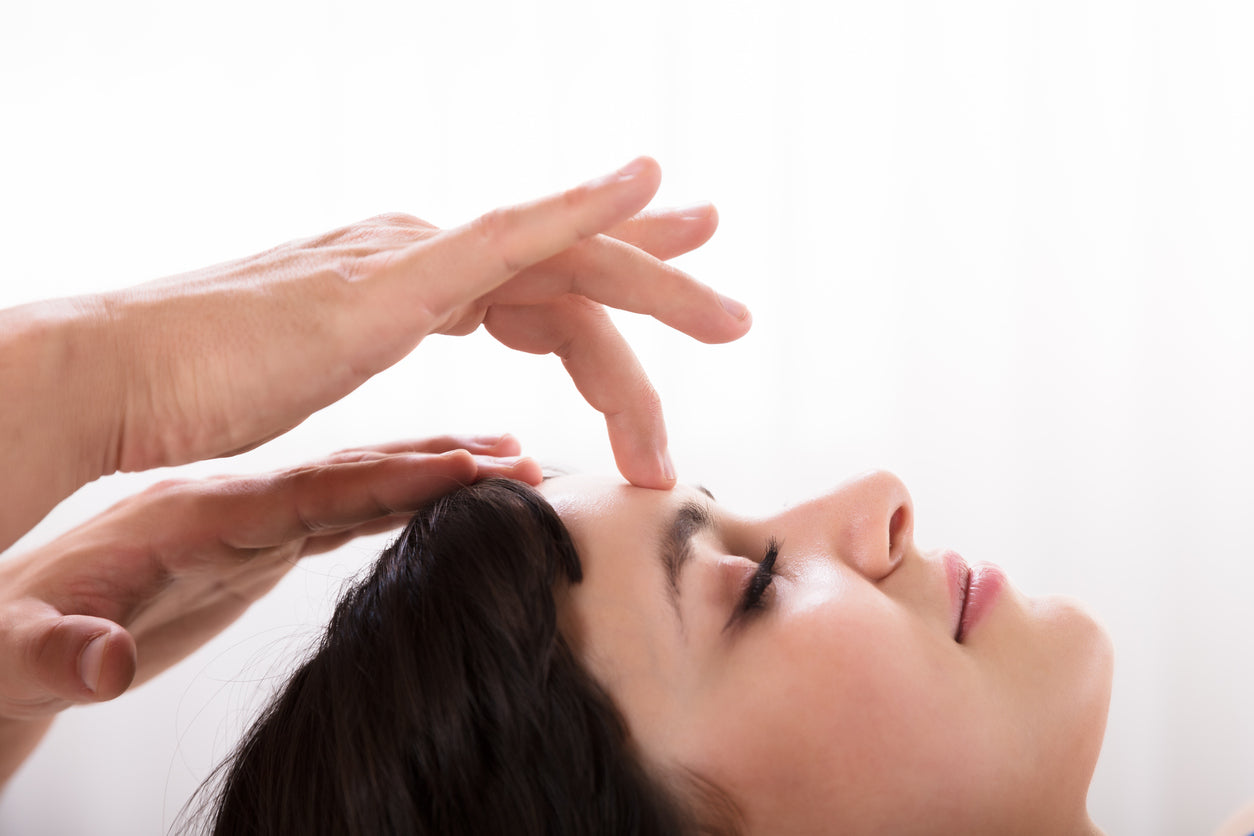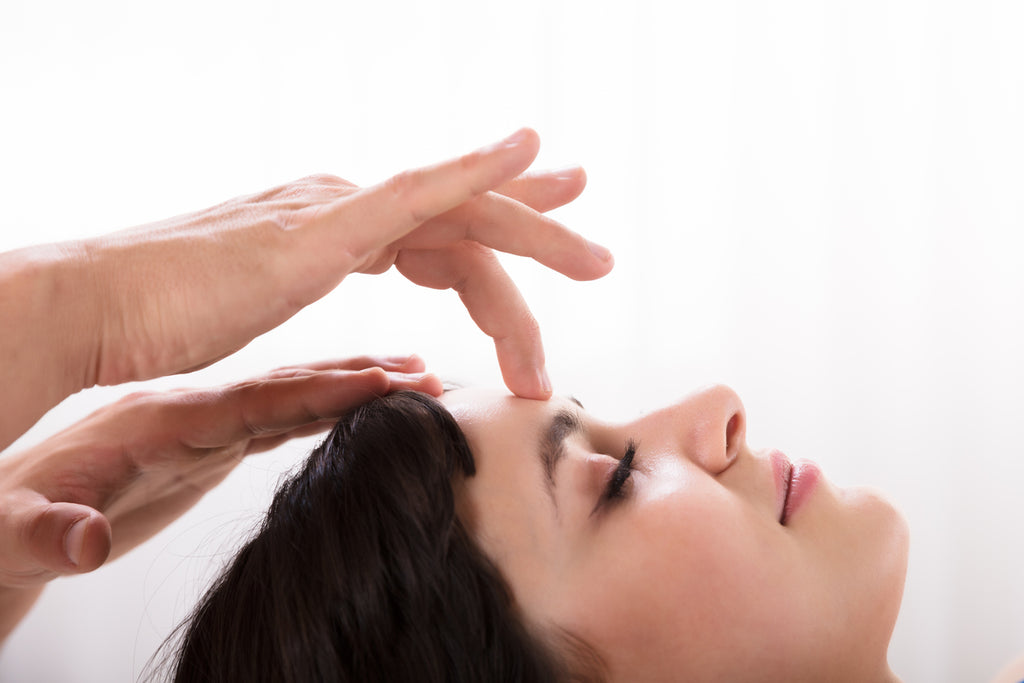If you haven’t heard of psychodermatology, now is the time to get yourself up to speed! This relatively new field is considered a subspecialty of both psychiatry and dermatology—just like it sounds. Have you ever noticed an outbreak of acne or flaring rosacea when nothing about your physical routine—food, exercise, climate, sleep—has changed? You probably had trouble deciding what could have been the cause. But were you in the midst of an intense work deadline or some family challenges? Because stress and anxiety can and do cause skin changes. Let’s talk about why and how you can treat it, by embracing psychodermatology.
The Case for Psychodermatology
For starters, let’s pick up where we left off. How does stress and anxiety cause skin changes? The answer lies in a pesky little hormone: cortisol. When your body experiences increased stress or anxiety, it releases more cortisol. This is less than ideal for a few reasons.
“Fluctuating levels of cortisol in the body makes the skin more sensitive and reactive,” says Dr. Pankaj Chaturvedi, a Mumbai-based dermatologist who was interviewed on the subject by Vogue India. “High cortisol levels cause the skin’s sebaceous glands to produce more sebum. This additional oil clogs the pores, leading to the development of inflammation and bacteria that results in acne. Cortisol also has the power to accelerate the aging process of the skin, rapidly enhancing common unwanted aging signs like lines and wrinkles, age spots and skin dullness. When your body starts producing excess cortisol, it loses its ability to retain water. This is what leads to dehydrated skin that looks flaky. Worse, dry skin often accelerates the appearance of dark spots and wrinkles as well.”
So, high cortisol caused by stress and anxiety can contribute to inflammation, clogged pores, accelerated aging, and dryness. Um, no thanks.
But in a society where we are all so busy—so pulled in what feels like a hundred directions at once—how do we manage this issue? Of course, managing your stress and anxiety is a personal journey that might involve any number of tactics, ranging from therapy and meditation to weekly no-tech days and setting strong boundaries.
That said, there are ways to approach the management of stress and anxiety with skin, specifically, in mind. This is where a psychodermatologist comes in.
How Does Psychodermatology Work?
Essentially, the art of psychodermatology is one of strategic, holistic thinking. It may include the same topicals and treatments you are familiar with from your regular dermatology office. But if you feel that mental health could play a role in the challenges you’re having, it adds assistance in those categories too. Approaches like interpersonal therapy, cognitive behavior therapy, hypnosis, and mind-body practices are all on the table. Psychodermatologists can also prescribe medications if needed.
A good psychodermatologist may help patients who are suffering from mental health struggles directly caused by their skin conditions as well. It feels like a chicken-or-the-egg question, but having skin issues can cause additional stress and anxiety. Talk about a vicious cycle. A psychodermatologist is uniquely equipped to view this in a holistic way, which may result in more effective treatments and approaches for both skin and mind.
Psychodermatologists are also the perfect addition to the team for people who suffer from disorders like trichotillomania. They will have a highly niche perspective on both the behavior and the resulting hair growth and skin problems.
Where Can I Find a Psychodermatologist?
At the moment, this is an emerging field, especially in the United States. Big cities like New York and Los Angeles probably have a few practitioners, but if you aren’t located in or near a major metropolitan area, it might take a while to find someone. That said, you could search for a virtual option.
In the meantime, exploring the skin-mind connection on your own could be a wonderful place to start. One great way to begin doing this is to journal daily. This will help you to keep track of how you’re feeling, mentally, day to day. When you suddenly have a major breakout and your journal shows many days in a row of excessive stress, you might discover a correlation.
We’ve also got a quick cheat sheet for managing cortisol! Try out these tips and tricks:
-
Drinking caffeine first thing in the morning can spike cortisol levels. We would never suggest that you skip your sacred morning cup, but consider balancing it out with some protein first thing in the morning. This helps the naturally high cortisol levels you wake with to level out throughout the day, while also negating some of the increase the caffeine will cause. One of our favorite hacks is to mix a little bit of our PlantYourDay protein powder into your coffee.
-
Another bit of advice is to narrow down supplementation. Rather than grabbing a multivitamin and calling it a day, consider your unique needs. If you feel stress levels could be contributing to your skin challenges, a targeted supplement like our MindYourMind formula could be a huge boost.
-
Prioritize drinking enough water. Yes, just like most things related to our health, water is key. It plays a part in keeping cortisol levels balanced for happy skin. Dehydration has been linked to higher cortisol levels, and then those can cause more dehydration, as Dr. Chaturvedi mentioned before. Do not ignore your water bottle!
- Practice deep breathing. Several times a day, take a moment to close your eyes and take a deep breath, in through the nose and out through the mouth. Do this several times. It helps to regulate your nervous system, which plays a role in cortisol.
With these tips in hand, we think you’ll be well on your way to having a more hormonally balanced mind and body—and the balanced skin that comes with it! But we also hope you’re able to find a great psychodermatologist if you so desire. This new field of medicine promises to change the future of mental health and skincare in one go, and we love that.


